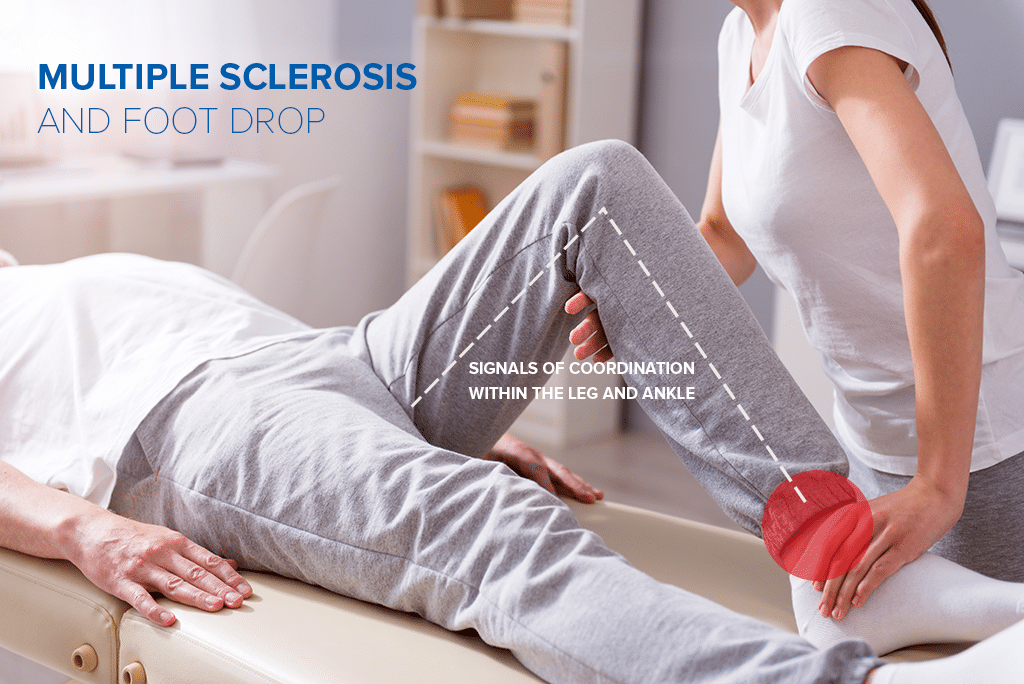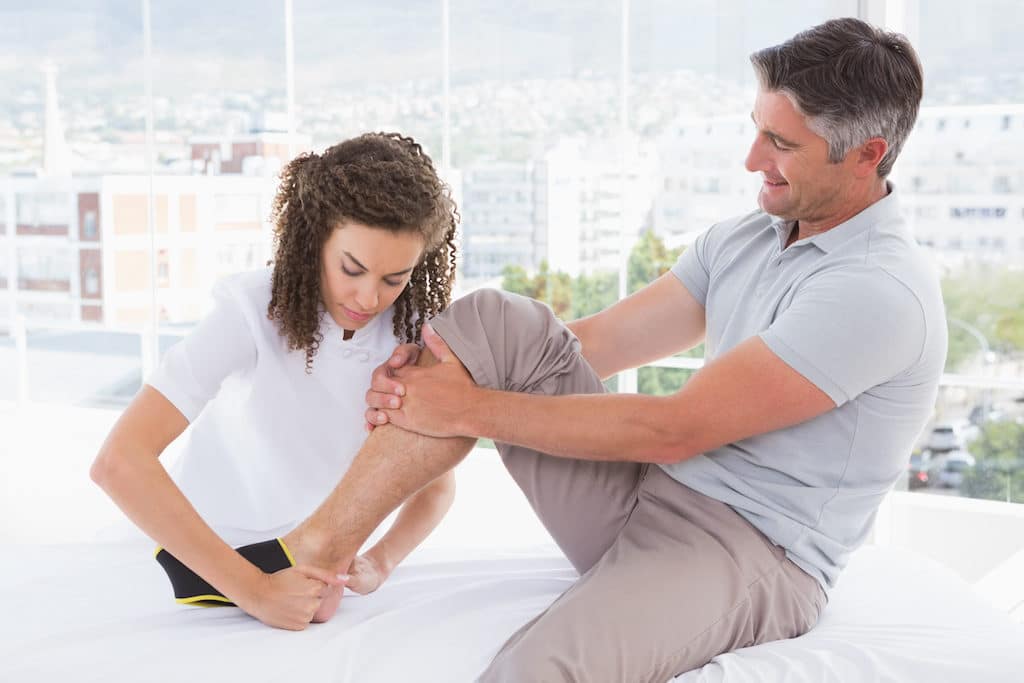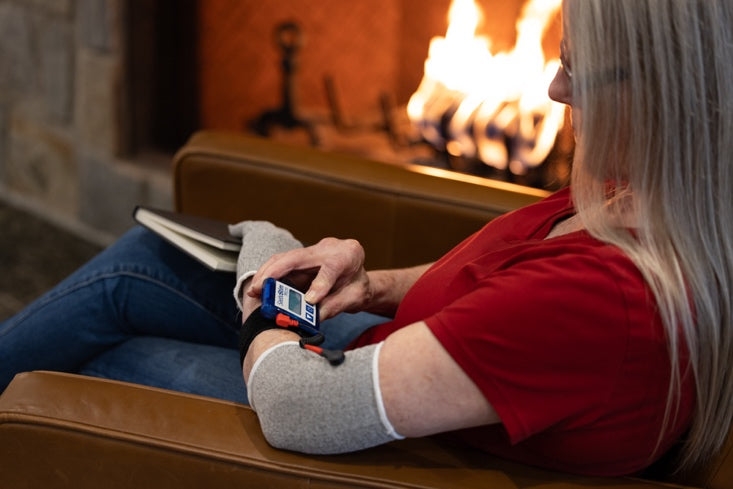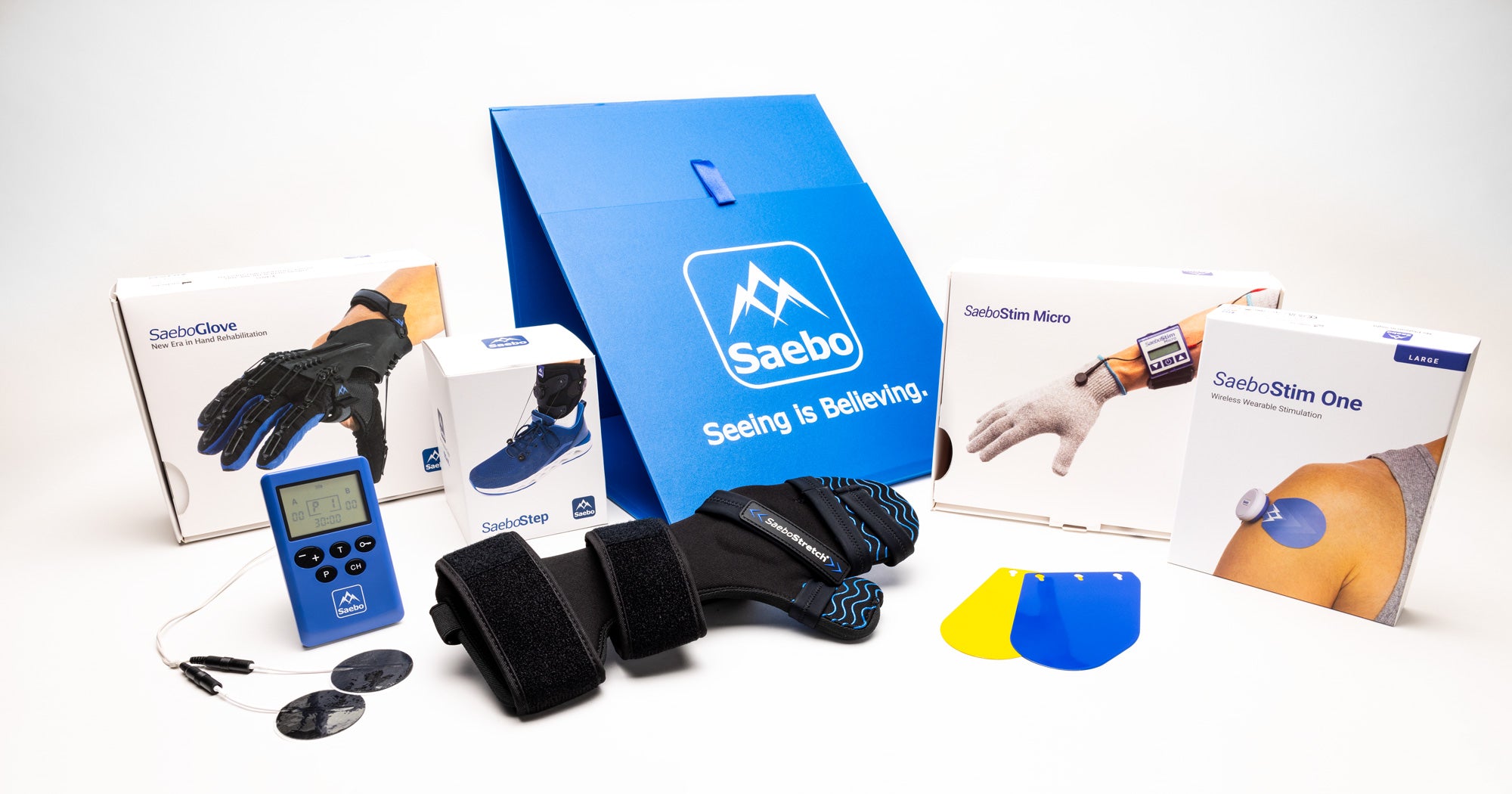Managing MS Related Foot Drop


Being diagnosed with Multiple Sclerosis (MS) is a tremendous battle for anyone to face. MS is a chronic disease that damages nerves in the brain and spinal cord, and that destruction can cause a slew of other impairments, including something called foot drop.
Sometimes referred to as “drop foot,” foot drop represents a fundamental issue with a person’s neurological, muscular, or anatomical structure. You may notice that someone suffering from the condition may have a hard time lifting the front part of their foot, or they may even drag their foot against the ground when walking. To compensate for their lack of function, one may have to exert more energy in order to move properly, such as having to lift their entire leg so that their foot can efficiently clear the space beneath them. These compensatory movements can lead to further pain and issues as well.
The impact of excessive force from lifting and dropping the leg has the potential to cause greater damage to the feet, so discovering ways to prevent foot drop from becoming worse is crucial in maintaining an MS patient’s overall health and mindset.
Multiple Sclerosis and Foot Drop

Since MS damages the nerves within the brain and spinal cord, the disruption of mobility has less to do with nerves in the leg and more to do with the signals of coordination within the leg and ankle. The signals that transfer through the body must be in rhythm with the leg and ankle in order to execute a step at the appropriate trajectory, so if that rhythm is out of sync, more issues will likely arise.
Along with toes scraping the ground and harmful impacts to the foot, there are several other MS symptoms that contribute to the severity of foot drop. If someone with MS repeatedly experiences physical damages to their feet, then over time numbness can potentially take over and prevent them from feeling any sensations at all.
From numbness and a lack of consistent movement, a victim may experience leg spasms or muscle fatigue, which can lessen their lower-body control altogether. The important thing is to recognize the issue early on so that a treatment can be implemented to improve mobility and strengthen recovery.
Treatments for MS-Related Foot Drop

Physical Therapy
Depending on the severity of the impairment, someone struggling with foot drop may try consulting with a physical therapist for rehabilitation. Physical therapists are able to treat diseases, injuries, and deformities with physical techniques, such as heat treatments, massages, and exercise routines. In addition to providing specialized care, they can also treat other symptoms that may be conducive to foot drop, like muscle spasms or gait. The good thing about this option of treatment is that it can offer a wider scope of understanding into an individual’s status, and further actions can be taken if any of these methods show no development.
Functional Electrical Stimulation (FES)
For a more direct treatment, FES is a process in which a device transmits electrical currents to the nerve cells in the damaged muscles of the leg or foot while one is in motion. Positioned on the leg or around the waist, a small sensor is placed within the shoe that triggers the device to fire with every step, mimicking the natural fire of synapses in the brain. Pursuing FES treatment is something that a therapist can recommend based upon the severity of a patient’s condition, so it is always a good idea to consult with a doctor before choosing this procedure.
Ankle-Foot Orthoses (AFO) or Foot Drop Braces
If physical therapy and FES treatments show no results, then it may be time to consider using an ankle-foot orthoses (AFO) to improve functionality. An AFO is a kind of brace that prevents the front of the foot from dipping down and disrupting walking movements. The foot is held firmly in place by the device, and the wearer can choose from a range of available looks that meets their needs. There are styles that mold right into a pair of regular shoes, and other designs may call for a shoe with a greater depth.
For a design that is both comfortable and inconspicuous, as well as affordable, the SaeboStep—made to replace cumbersome, unreliable splints and braces within the shoe—is a unique foot drop brace that gives excellent support and plenty of space when walking. Speak with a therapist to decide which options will give the best assistance.
Overcoming Foot Drop
Dealing with MS certainly has its difficulties, but limited mobility doesn’t have to be one of them. It’s important to remember that foot drop is a result of other issues caused by MS, such as numbness, leg spasms, instability with balance, and exhaustion; thus, finding a treatment that alleviates foot drop can be a huge benefit for not only personal rehabilitation, but also for conserving energy and channeling it into a positive outlook for the future. The methods listed above will certainly offer physical advancement, but it is always a good idea to consult with a professional who can assess the correct the pathway to recovery. Suffering from foot drop may feel like an uphill battle, but with patience and positivity, reaching the top is possible.
All content provided on this blog is for informational purposes only and is not intended to be a substitute for professional medical advice, diagnosis, or treatment. Always seek the advice of your physician or other qualified health provider with any questions you may have regarding a medical condition. If you think you may have a medical emergency, call your doctor or 911 immediately. Reliance on any information provided by the Saebo website is solely at your own risk.
All content provided on this blog is for informational purposes only and is not intended to be a substitute for professional medical advice, diagnosis, or treatment. Always seek the advice of your physician or other qualified health providers with any questions you may have regarding a medical condition. If you think you may have a medical emergency, call your doctor or 911 immediately. Reliance on any information provided by the Saebo website is solely at your own risk.



